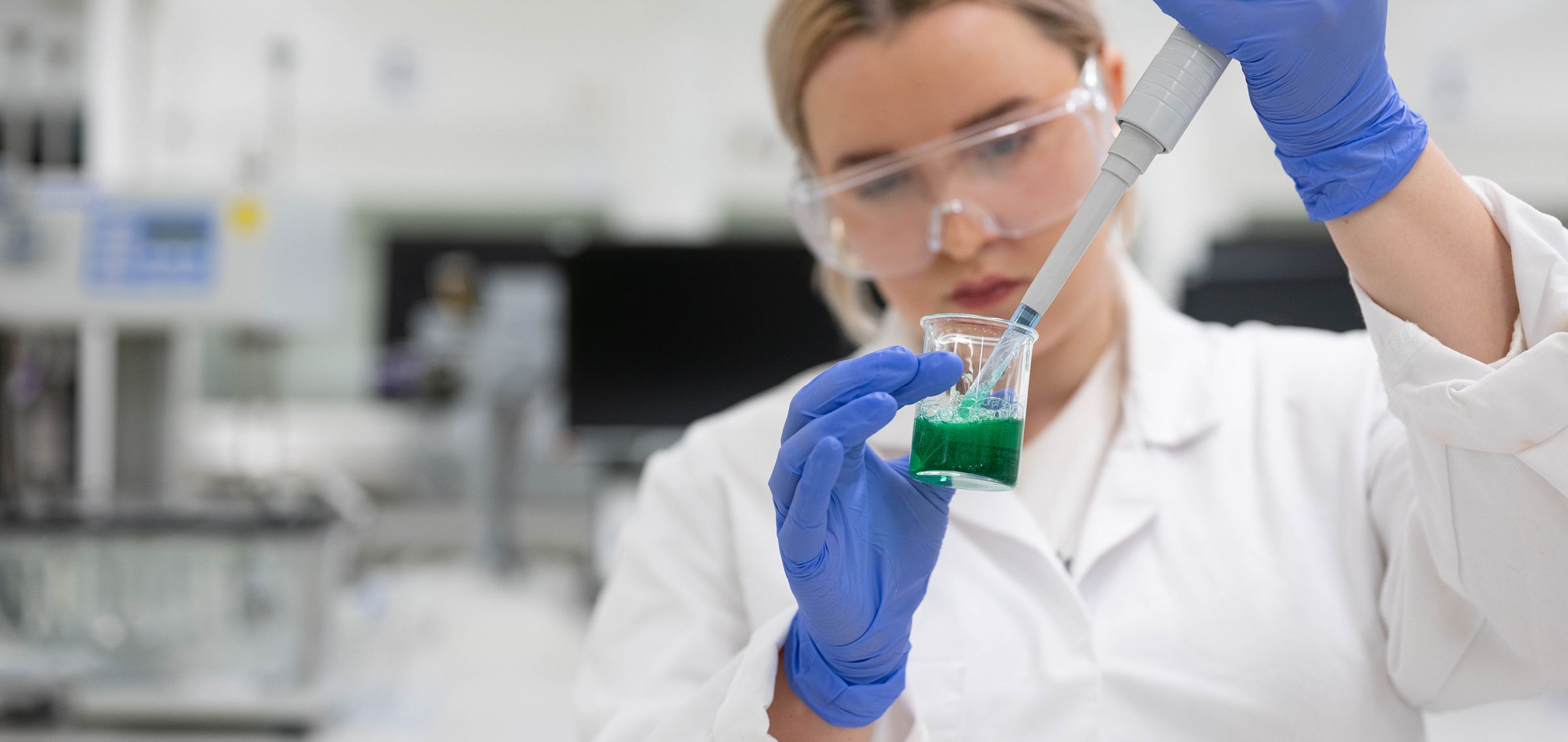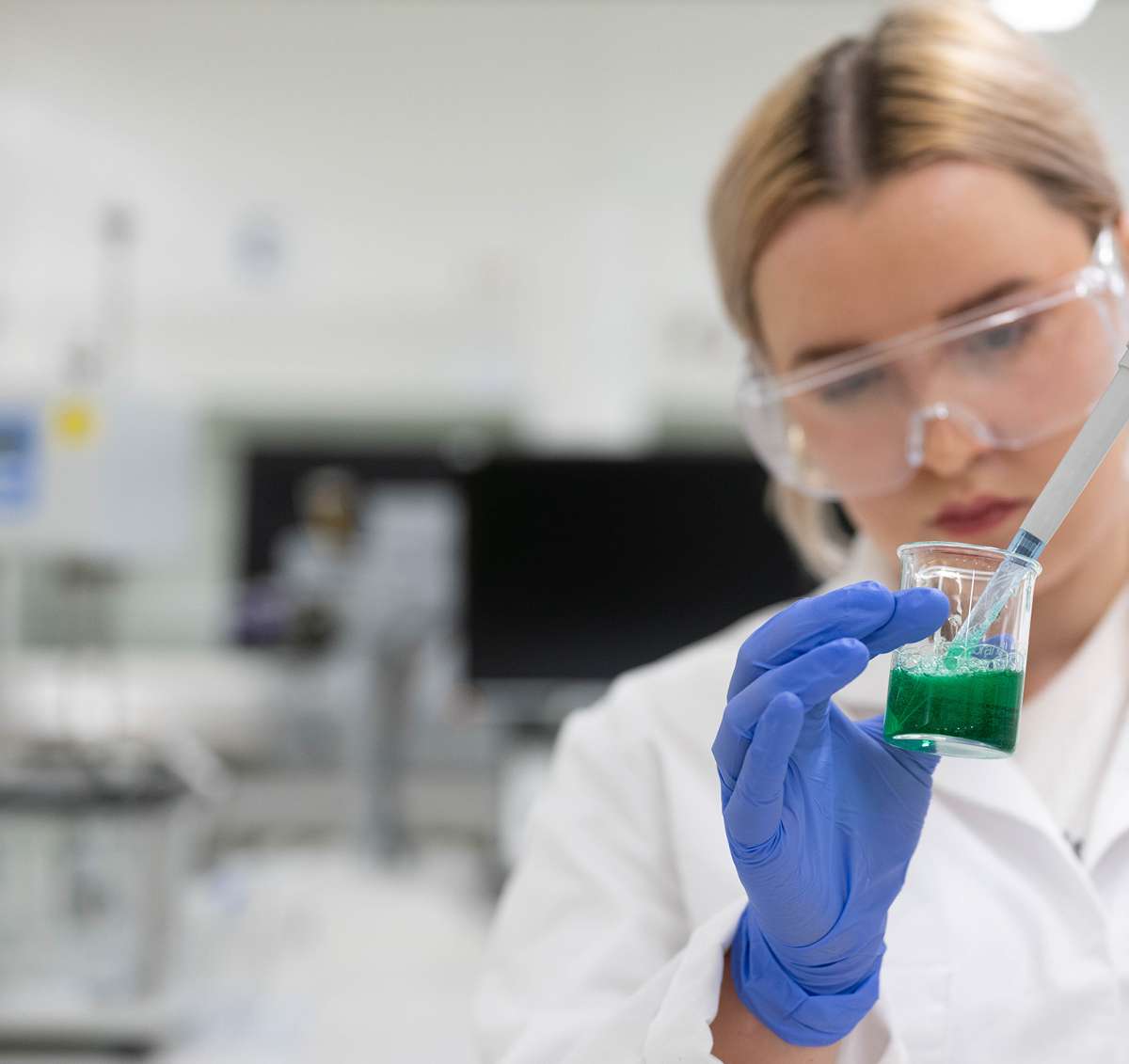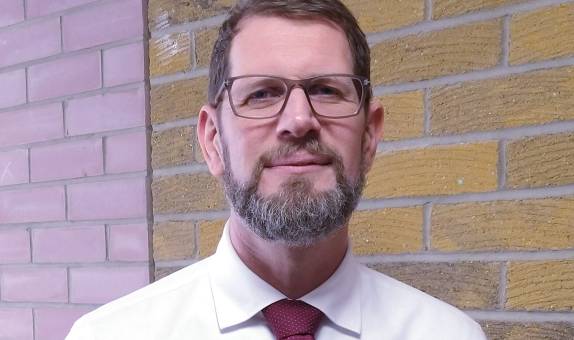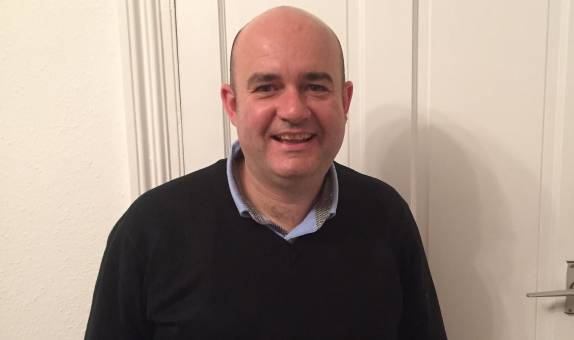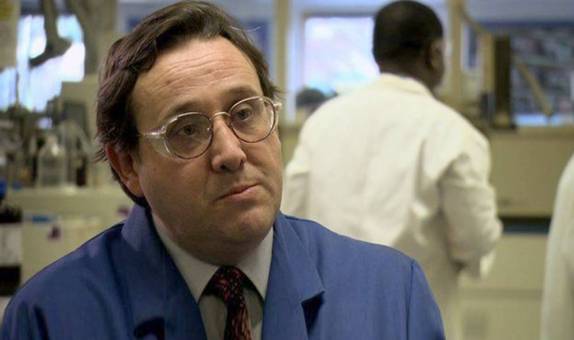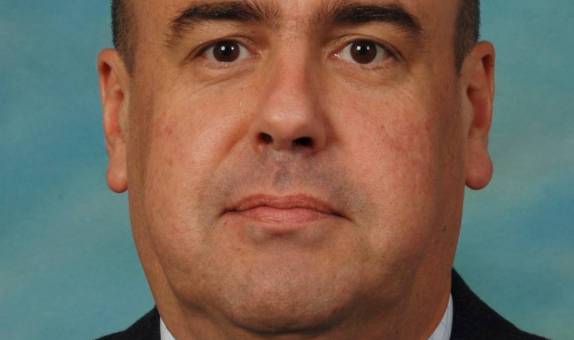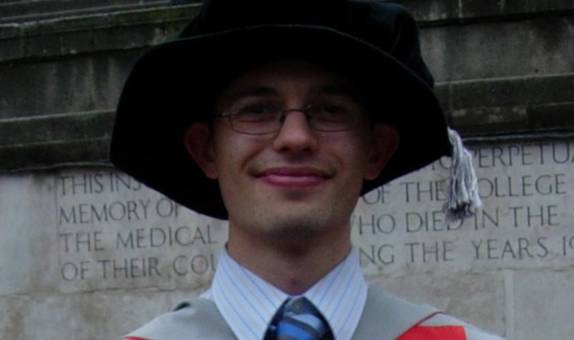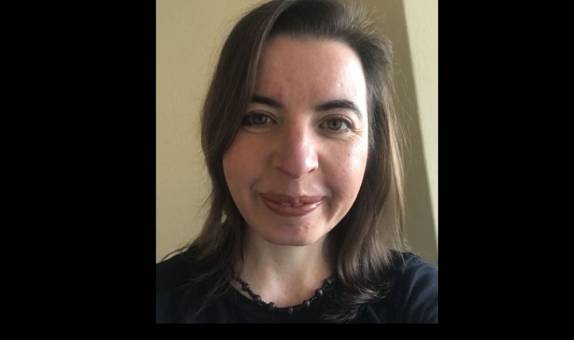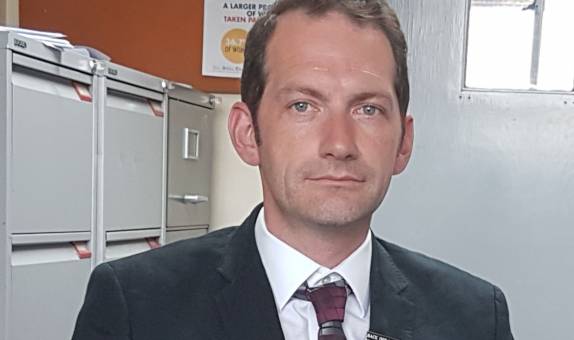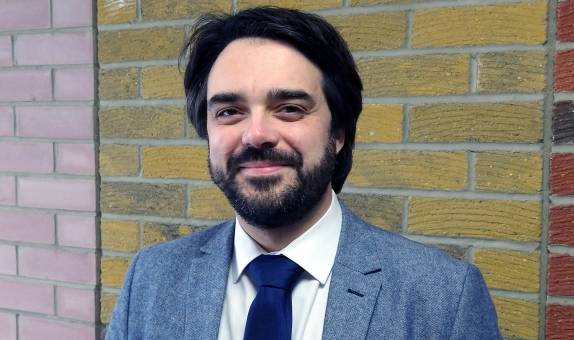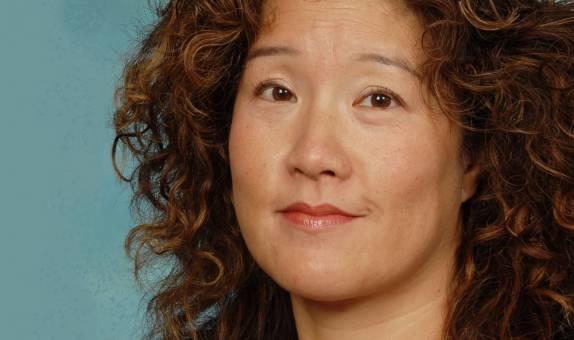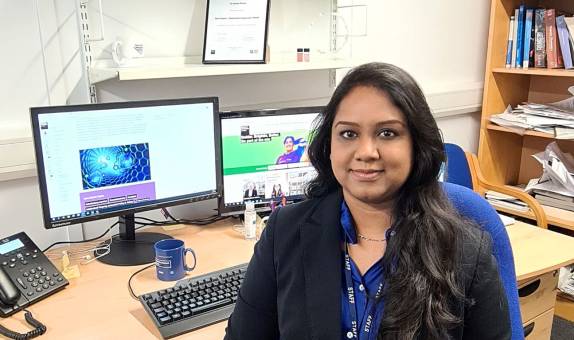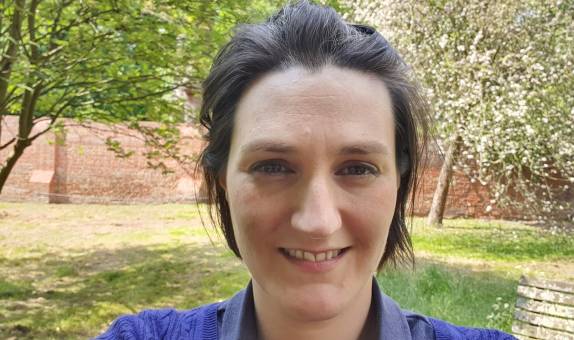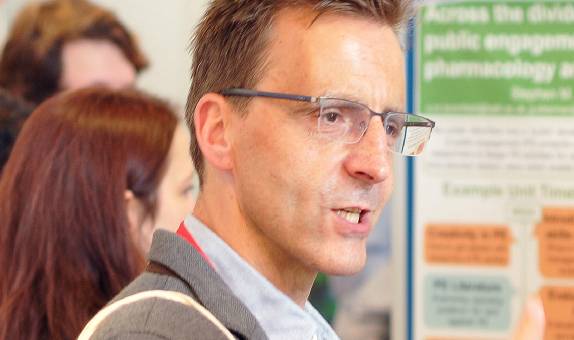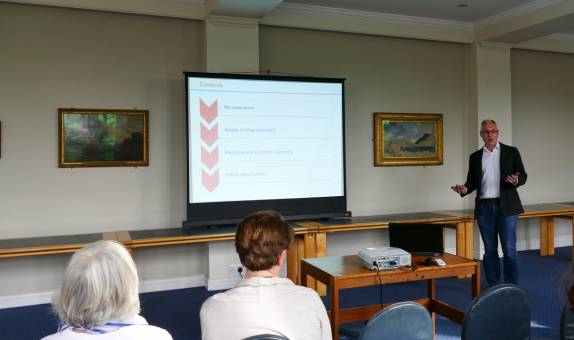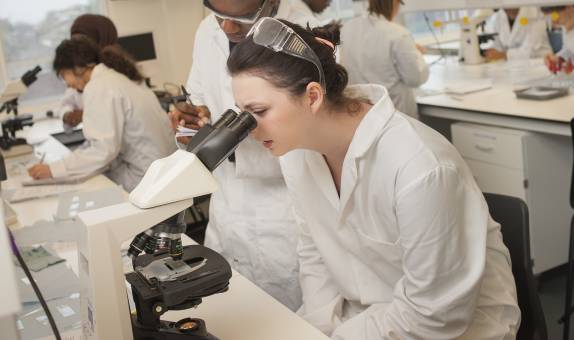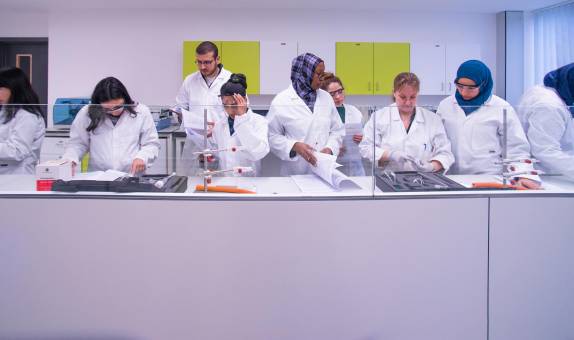Chemistry BSc (Hons)

Teaching Excellence Framework (TEF) Gold award
Our commitment to high quality teaching has been recognised with a TEF Gold rating. The University has received an overall rating of Gold, as well as securing a Gold award in the framework's two new student experience and student outcomes categories.
Why choose this course?
Do you want to be involved in making positive changes to the world? This could be the course for you. Chemistry affects every aspect of our lives, from clothing to medicines that help millions of people. It plays an integral part in solving global challenges such as food security, plastic pollution, developing alternative energies, and synthesising new medicines and materials.
Chemistry at Kingston offers knowledge and skills relevant to industry, research and teaching. You'll gain practical skills in our laboratories, broaden your knowledge of environmental chemistry, and develop the academic and professional skills valued by employers.
Through optional modules, you can tailor this degree to your interests and career goals. An individual project enables you to investigate a chosen area in depth.
This course is currently being revalidated for 25/26 entry. We are reviewing our modules to enhance the student-centred learning experience. This includes updating course content to meet industry needs and ensuring you develop the skills needed to become a future-proof graduate.
| Attendance | UCAS code/apply | Year of entry |
|---|---|---|
| 3 years full time | F100 | 2025 |
| 4 years full time with professional placement | F101 | 2025 |
| 4 years full time including foundation year | F108 | 2025 |
| 6 years part time | Apply direct to the University | 2025 |
Please note: Teaching on this course may take place on more than one KU campus.
| Main Location | Penrhyn Road |
Reasons to choose Kingston University
- This degree is accredited by the Royal Society of Chemistry (RSC).
- You'll have the opportunity to have a one-year work placement. This will give you valuable experience and help prepare you for a career in chemistry.
- Kingston's state-of-the-art laboratories include networked computers for each workspace, which are newly refurbished through a £6 million investment.
- 95.7% of students were satisfied with the IT resources and facilities on this course (NSS 2023).
What our students say
What you will study
Year 1
Year 2
Year 3/4
Year 1 introduces the fundamental aspects of the subject. Three foundation modules consolidate your existing knowledge and provide a base on which you can develop advanced concepts. You will learn and develop the laboratory and practical techniques needed for the later years of the course. You will also broaden your knowledge through a module that discusses environmental chemistry. A further module of academic and professional skills enables you to enhance transferable skills valued by employers.
Core modules
Foundation Organic and Physical Chemistry
30 credits
This is a core module for Chemistry degree courses. It introduces the structure and isomerism observed in organic molecules, then describes the preparation and chemical reactions (including the mechanisms involved) of the hydrocarbons and monofunctional organic molecules. The main principles of molecular systems, chemical reactivity and kinetics, including those of gas-phase reactions, are described before presenting the essential principles of chemical thermodynamics and molecular quantum mechanics.
Foundation Inorganic and Environmental Chemistry
30 credits
This is a core module for chemistry degree courses. The module introduces various bonding models including the structure and bonding of inorganic solids. Trends in the periodic table are illustrated by coverage of the chemistry of Group 1, 13 and 17 elements. The module introduces you to atmospheric and aquatic pollution and goes on to cover the impact of pollutants on the environment.
Introduction to Spectroscopy and Experimental Techniques
30 credits
This module provides an introduction to basic laboratory techniques and procedures such as weighing and volumetry, proceeding to descriptions of laboratory manipulations, elemental analysis and general practical knowledge. You will be introduced to spectroscopic techniques in terms of simple theory, as well as a practical introduction to the identification of simple organic compounds. These compounds will sometimes be synthesised in the course of the practical element of the module, which will also serve to demonstrate laboratory techniques of preparation and purification of these organic materials.
Academic Skills for Molecular Sciences
30 credits
You will gain a thorough grounding in mathematical, presentation, reporting and IT skills to support your scientific progress. This module will help you develop effective learning strategies. It provides the foundation for your personal and career development.
This module will introduce you to Future Skills through engagement with Navigate. You will be supported by themed tutor meetings enabling you to work on tasks to develop your graduate attributes.
Year 2 takes a more in-depth look at inorganic, organic and physical chemistry. You will continue to carry out experimental work, developing the theoretical knowledge and practical skills needed to become a competent professional. Additional modules, covering experimental and analytical chemistry, will expand your skills for interpreting the results of modern spectroscopic investigations. An optional professional placement year provides an opportunity to gain first-hand experience of how chemistry is applied in an industrial situation. The industrial placement tutor will help prepare you to find a placement.
Core modules
Inorganic Chemistry
30 credits
This module is a core module for the Chemistry fields. The module builds upon the theory and principles developed in Foundation Inorganic Chemistry and Environmental Chemistry and applies them second and third row transition metal, the lanthanides and Group 14. It introduces solid state chemistry with a consideration of defects and conductivity. The module also introduces bonding and reactivity of inorganic complexes and organometallics. Nearly 25% of the teaching time is spent in the laboratory carrying out synthetic work and quantitative analysis.
Organic and Medicinal Chemistry
30 credits
You will expand your knowledge of both Organic Chemistry and Medicinal Chemistry subject areas and introduces important principles, reactions and mechanisms in organic chemical reactivity as well as basic mechanisms of drug action. You will develop your understanding of the methodology of organic synthesis following concepts introduced in Year 1, and study important organic chemistry topics such as carbanion reactivity of carbonyl compounds, the reactions of aromatic and heteroaromatic compounds, stereochemistry, asymmetric synthesis and retrosynthesis
It also introduces the specific reasons why a small amount of a drug molecule can exert a complex biological response. It uses examples from a range of medicinal areas in order to illustrate these key processes as well as giving an introduction on the ideas of drug design and the role this plays in the modern pharmaceutical industry. This module also gives you experience of using spectroscopic techniques for chemical structure elucidation.
Physical Chemistry
30 credits
This is a core module for Chemistry degree courses. The module discusses the electrochemistry of ionic solutions including both strong and weak electrolytes; cell electrochemistry and the associated applications to chemical thermodynamics; phase equilibria and colligative properties; transition state theory of chemical reactions; complex reaction mechanisms and their kinetic analysis; an introduction to statistical thermodynamics and partition function; and the quantum mechanics and theory underlying both rotational (microwave) and vibrational (Infra-red and Raman) spectroscopies, including rigid rotor and centrifugal distortion models and both simple harmonic and anharmonic vibration models and their interactions.
Analytical and Experimental Chemistry
30 credits
This is a core module for BSc Chemistry and MChem students. It takes forward the themes of analysis and practical procedures (with an emphasis on analytical and organic chemistry) that were introduced in previous modules. It incorporates both a more rigorous approach to laboratory work, coupled with developing the research skills required to devise experiments and then objectively assess results, followed by preparing high-quality reports and presentations.
The analytical methodologies and experimental techniques are those used routinely in academia, industry, and other laboratory research - spectroscopy; organic syntheses; molecular modelling; inorganic and physical chemistries; and the uses of applied separation technologies in common use.
The modes of obtaining and evaluating findings, by use of electronic databases (e.g. Reaxys®) in addition to conventional printed literature sources. The ability to write coherent, evidence-based, yet succinct reports is a component.
Students will also gain opportunities to develop other important skills, from utilising statistics to planning and presentation techniques, all of which improve employability.
Over 50% of the formal contact teaching time is spent on practical work. Core teaching material is uploaded onto Canvas with lectures explaining key concepts.
In Year 3, you will undertake more specialised study of the inorganic, physical and organic chemistry taught in Years 1 and 2, with the chance to choose optional modules in areas of analytical or polymer and industrial chemistry. There is also a project module, which forms an important part of this year's work and allows you to investigate a research topic in a chosen area of interest.
Core modules
Organic and Natural Product Chemistry
30 credits
This is a core module for Chemistry and M. Pharm. Sci degree courses, and is optional for the BSc. Pharm. Sci. Degree course. The module builds upon and develops further, topics introduced in the earlier level 5 module CH5002, for example, stereoselective synthesis and retrosynthetic analysis. In addition, new topics are introduced such as pharmacognosy, combinatorial chemistry, photochemistry, free radical chemistry and pericyclic reactions. The lectures and associated workshops will encourage the development of problem solving and team working skills, in order to prepare you for your future careers. These skills will be practised during laboratory-based exercises, where you will participate in group "mini-projects" which will be assessed using a range of methodologies that include oral presentations, report writing and poster presentations.
Inorganic Chemistry 2
15 credits
This is a core module for both the MChem Chemistry, MChem Chemistry with Medicinal Chemistry and BSc Chemistry courses. It introduces bio-inorganic chemistry and supramolecular chemistry, as well as further developing your understanding of organometallic and main group chemistry, including spectroscopic characterisation.
You will be introduced to modern aspects of organometallic and supramolecular chemistry and explore the importance of inorganic compounds in living systems. You will also develop key skills in practical air-sensitive chemistry.
Physical Chemistry 2
15 credits
This module takes forward the themes of atomic and molecular electronic structure, photochemistry and spectroscopy, which were introduced in the previous modules, and develops a more rigorous theoretical footing. Important concepts of surface chemistry are developed through the study of various surface phenomena such as adsorption and micellization. There is also a focus on scientific communication.
You will be introduced to theoretical aspects of the electronic structure of atoms and molecules. You will develop concepts in atomic and molecular spectroscopy, photochemistry, surface science; and learn how to explain complex scientific information concisely to a non-expert audience.
Project
30 credits
This module is a core module for Level 6 Pharmaceutical Science, Chemistry, Pharmaceutical and Chemical Sciences top up and Pharmaceutical Studies students and an option module for Forensic Science students. The module provides you with an opportunity to undertake a scientific project and develop skills required to plan a project, develop a methodology, analyse the data and disseminate the results. Two types of projects are offered to you: an experimental or a non-experimental project. The end point is the same in both cases: review and critical evaluation of data generated from laboratory experiments or collected from published works.
Optional modules
Advanced Analytical Science
30 credits
This is a core module of MPharmSci (Hons) Pharmaceutical Science and an option for BSc (Hons) Chemistry and BSc (Hons) Pharmaceutical Science students. It takes forward the themes of spectroscopy that were introduced in the previous modules and develops a more rigorous theoretical footing and advanced applications. In parallel to this, analytical themes are introduced, covering radiochemical analysis, electroanalysis and thermal analysis.
Advanced Materials and Industrial Chemistry
30 credits
This module addresses some of the most current and industrially relevant areas of applied chemistry. Key topics include polymer chemistry, Nano materials synthesis and applications, heterogeneous catalysis, green chemistry, sustainable practices in chemistry, intellectual property and health and safety. Materials conveyed in lectures will be further reinforced via workshops and laboratory practical classes. Areas covered in the module will be evaluated via summative assessments and final exam, and group presentations, that will test critical thinking, communication skills, team work and handling Q&A. Overall, this module will provide a grounding in commercially and industrially relevant topics in chemistry as well as providing key employability skills.
Please note
Optional modules only run if there is enough demand. If we have an insufficient number of students interested in an optional module, that module will not be offered for this course.
Foundation year
If you would like to study one of our science degrees at Kingston University but are not yet ready to join the first year of a BSc (Hons) course, you can include an extra foundation year within your chosen degree. Please see the science foundation year course page for details of modules.
Future Skills
Knowledge to give you the edge
Embedded within every course curriculum and throughout the whole Kingston experience, Future Skills will play a role in shaping you to become a future-proof graduate, providing you with the skills most valued by employers such as problem-solving, digital competency, and adaptability.
As you progress through your degree, you'll learn to navigate, explore and apply these graduate skills, learning to demonstrate and articulate to employers how future skills give you the edge.
At Kingston University, we're not just keeping up with change, we're creating it.

Entry requirements
Teaching and assessment
Scheduled learning and teaching on this course includes timetabled activities including lectures, seminars and small group tutorials.
It may also include placements, project work, practical sessions, workshops, conferences and field trips.
Staff teaching on this course
This course is delivered by the School of Life Sciences, Pharmacy and Chemistry.
The School of Life Sciences, Pharmacy and Chemistry offers an outstanding and diverse portfolio of undergraduate and postgraduate programmes in biological and biomedical sciences, chemistry, forensic science, pharmacy, pharmacological and pharmaceutical sciences, and sport science and nutrition.
We've invested heavily in the development of new facilities including laboratories for teaching and research to provide students with access to ultra-modern equipment in a wide range of teaching facilities.
Postgraduate students may run or assist in lab sessions and may also contribute to the teaching of seminars under the supervision of the module leader.
Course fees and funding
Additional costs
Depending on the programme of study, there may be extra costs that are not covered by tuition fees which students will need to consider when planning their studies. Tuition fees cover the cost of your teaching, assessment and operating University facilities such as the library, access to shared IT equipment and other support services. Accommodation and living costs are not included in our fees.
Where a course has additional expenses, we make every effort to highlight them. These may include optional field trips, materials (e.g. art, design, engineering), security checks such as DBS, uniforms, specialist clothing or professional memberships.
Facilities
There is a wide range of facilities for practical work at our Penrhyn Road campus, where this course is based. You will have access to a modern environment with the latest equipment, including:
- the £9.8 million Eadweard Muybridge building with state-of the art laboratories, including labs dedicated to chemistry;
- specialist equipment, such as:
- gas and liquid chromatography;
- electron and confocal microscopy;
- a range of spectrometers, including mass spectrometers, infrared spectrometers and nuclear magnetic resonance spectrometers;
- nuclear science equipment;
- thermal analysis;
- x-ray diffractometers; and
- electrochemical analysis;
- computing laboratories and a team of IT technicians to offer assistance.
The Library offers:
- subject libraries, plus a free inter-library loan scheme to other libraries in the Greater London area;
- online database subscriptions; and
- a growing selection of resource material.
Accreditation
This course is accredited by the Royal Society of Chemistry.
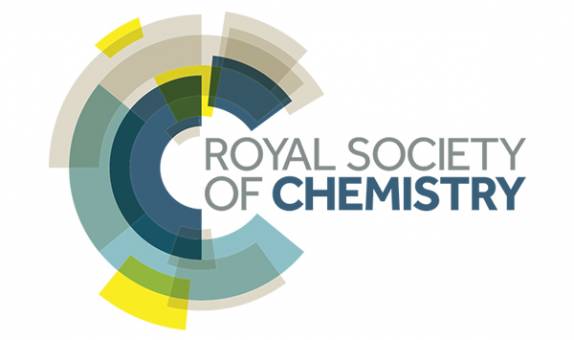
Royal Society of Chemistry
What our students say
After you graduate
Graduates work in areas such as research, chemistry, product development and engineering, and teaching.
What our graduates say
Work placement year
How you can work in industry during your course
Placements:
- provide work experience that is relevant to your course and future career
- improve your chances of graduating with a higher-grade degree
- enhance your CV
- lead to a graduate job
- enable you to earn a year's salary whilst studying (the vast majority of placements are paid)
- help you to select your final-year project
Study or work abroad
Key information set
The scrolling banner(s) below display some key factual data about this course (including different course combinations or delivery modes of this course where relevant).
Course changes and regulations
The information on this page reflects the currently intended course structure and module details. To improve your student experience and the quality of your degree, we may review and change the material information of this course. Course changes explained.
Programme Specifications for the course are published ahead of each academic year.
Regulations governing this course can be found on our website.
